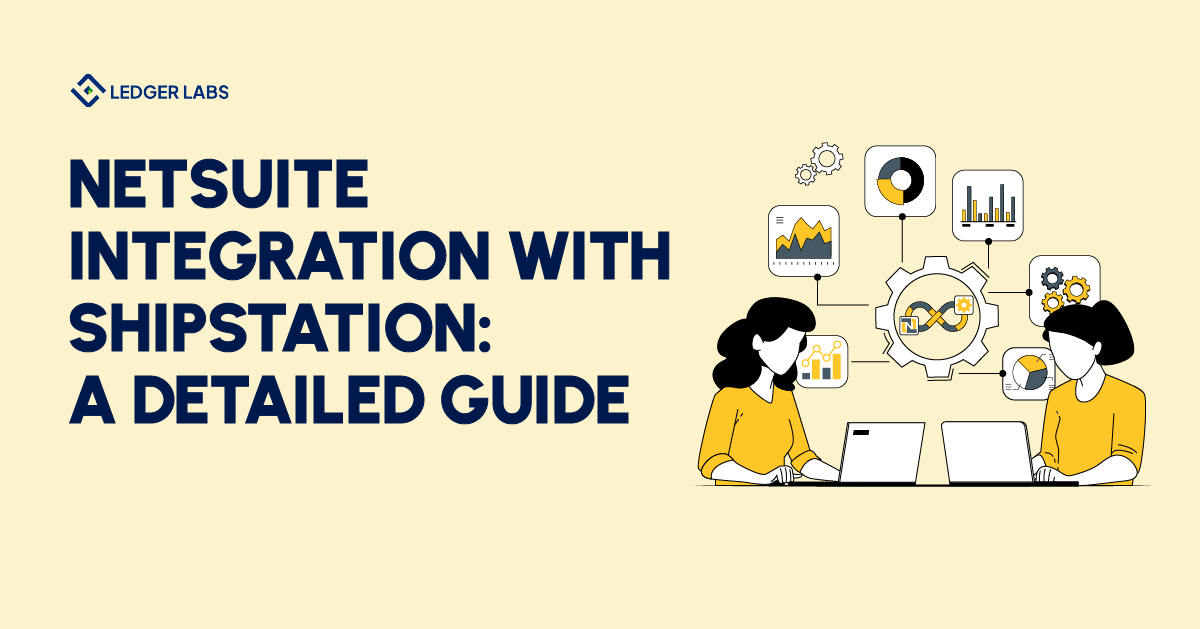Managing multiple sales channels can be stressful for a new business owner.
It involves data synchronization between your e-commerce store, online marketplaces, sales systems, and third-party logistic providers.
Lack of attention to detail leads to inaccurate inventory levels and order processing delays.
Manual data entry is also time-consuming, slowing down core business operations, and causing decreased productivity.
You can resolve this problem by integrating NetSuite with ShipStation.
This integration automates your business processes, syncing data between all your systems.
Imagine automatically transferring data from your inventory levels to your online store to avoid over-selling a product.
Eliminate manual input and automate your business processes by connecting NetSuite with ShipStation.
Let’s explore how.
- 42% of online buyers track their shipment status daily.
- Integrate NetSuite with ShipStation to automate your order processing.
- ShipStation helps with label generation, carrier options, shipment tracking, and overall automated workflow.
- Use NetSuite API for customized data mapping of NetSuite ShipStation integration.
Understanding ShipStation and how it integrates with NetSuite
Shipstation is a multi-carrier shipping software that makes e-commerce operations more efficient.
This platform is ideal for online retailers as it helps you organize, process, and ship your orders by synchronizing data with your online store.
It performs several functions, such as creating shipping labels and packing receipts, saving you time and money.
Let’s break down all the tasks it helps you with.
Label generation
It helps you create shipping labels in chunks as opposed to individually, making the workflow more efficient.
Carrier selection
You can use it to compare real-time rates of shipping carriers, such as FedEx, DHL, and USPS.
Comparison through quotations from different carriers allows you to choose the most cost-effective solution for every shipment.
Shipping Tracking
Visibility and clarity on shipment status improve customer experience.
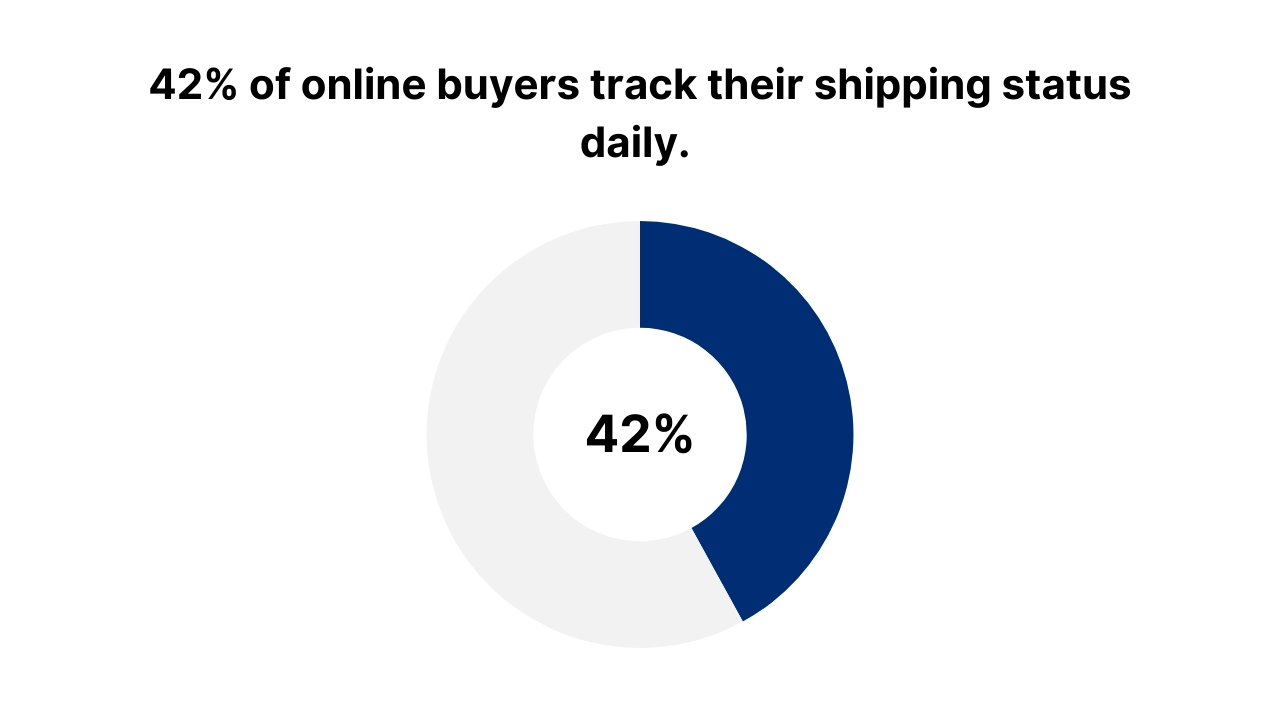
42% of online buyers track their shipping status daily to see if it has changed since they last saw it.
By maintaining transparency, you can develop trust with your customers.
Automated workflow
Automation reduces the chances of manual error and speeds up your daily processes.
By automating repetitive tasks, you avoid negligence and increase productivity.
Thus, ShipStation automates different repetitive tasks like title formatting and shipment routing.
By integrating NetSuite, an ERP solution, with ShipStation you can create a bi-directional data flow that helps you with inventory management, order synchronization, and shipment confirmation.
5 benefits of integrating NetSuite with ShipStation
NetSuite integration with ShipStation supports your business processes and increases productivity.
The most critical value it adds to your business is the automation of repetitive tasks.
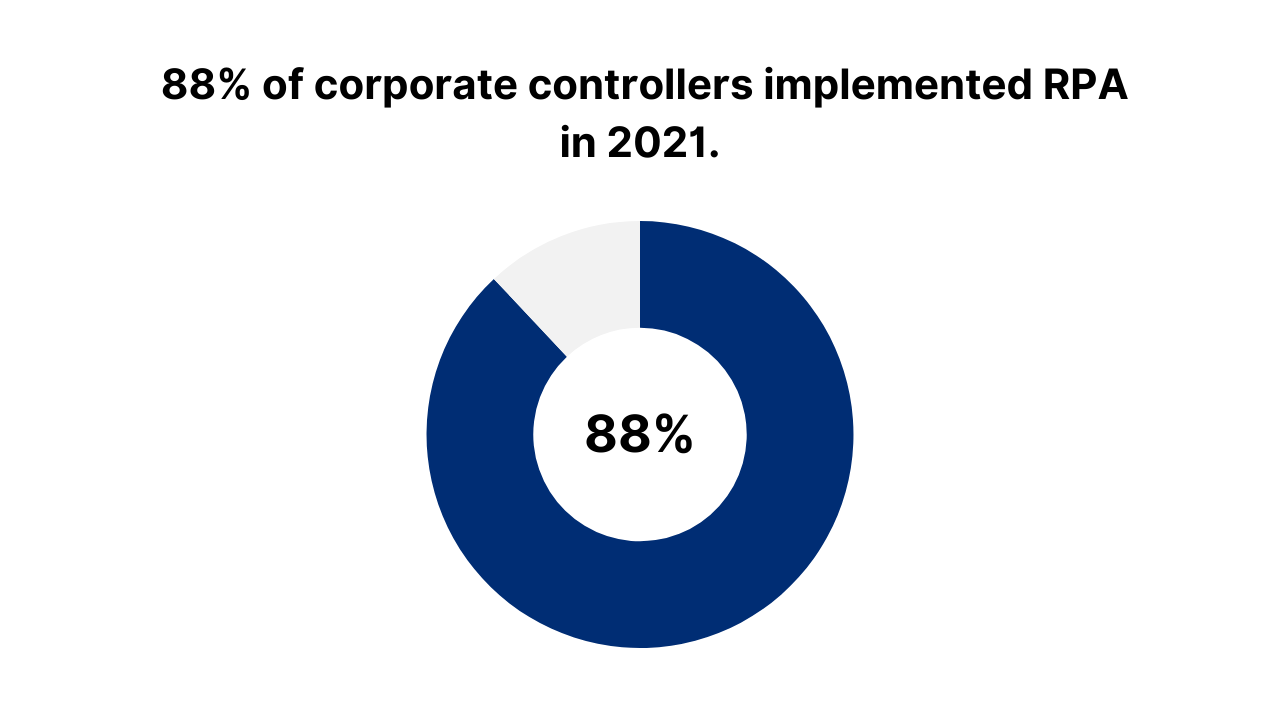
For example, 88% of corporate controllers implemented RPA in 2021. RPA is the automation of repetitive human tasks with software.
Meanwhile, the modern workflow automation management system is predicted to have a CAGR of 27.7% by 2025.
So, whether it is the automation of order processing or inventory management, automation increases workflow efficiency in e-commerce businesses, reducing manual errors and speeding up the order fulfillment process.
Here are 5 reasons why you should integrate NetSuite with ShipStation.
1. Automated order fulfillment
Integrate ShipStation with NetSuite to automate your entire order fulfillment process, from start to finish.
Order information stored in different vending avenues is automatically synced with NetSuite’s centralized database via its AP automation, making it accessible to all relevant stakeholders, and creating an efficient workflow.
It eliminates manual data entries that are not only prone to error but also time-consuming.
2. Inventory management
NetSuite gives you a centralized database, meaning all information regarding your inventory levels is available here.
In addition, all information is updated and synced in real time.
To give you an example as soon as someone makes a purchase from your online store, its impact will immediately be reflected in your inventory, and simultaneously your centralized database.
So when you integrate this centralized database with ShipStation, you make your inventory management simpler and more efficient.
Data synchronization happens across sales systems and warehouses.
So, what does it all mean for your business?
Well, it means the information you use for decision-making is always up-to-date. Data accuracy helps you avoid stockouts and dead stocks.
Your inventory levels are seamlessly managed so you easily avoid delays and poor customer experience.
3. Shipping rates and order tracking
Wouldn’t it be helpful if you had real-time shipping rates at the tip of your fingers?
Well, it is possible with the integration of ShipStation and NetSuite.
ShipStation provides real-time buying rates from different shipping carriers, giving you the option to choose the most convenient and cost-effective solution.
By connecting ShipStation with NetSuite, you get the rates directly available on the NetSuite platform.
This makes it convenient even as you have more control over your shipping rates and overall buyer satisfaction.
4. Efficient management of order refunds
If you run an e-commerce business, returns are unavoidable, no matter how frustrating they might be.
Order returns are a critical reason many refuse to buy from specific merchants.
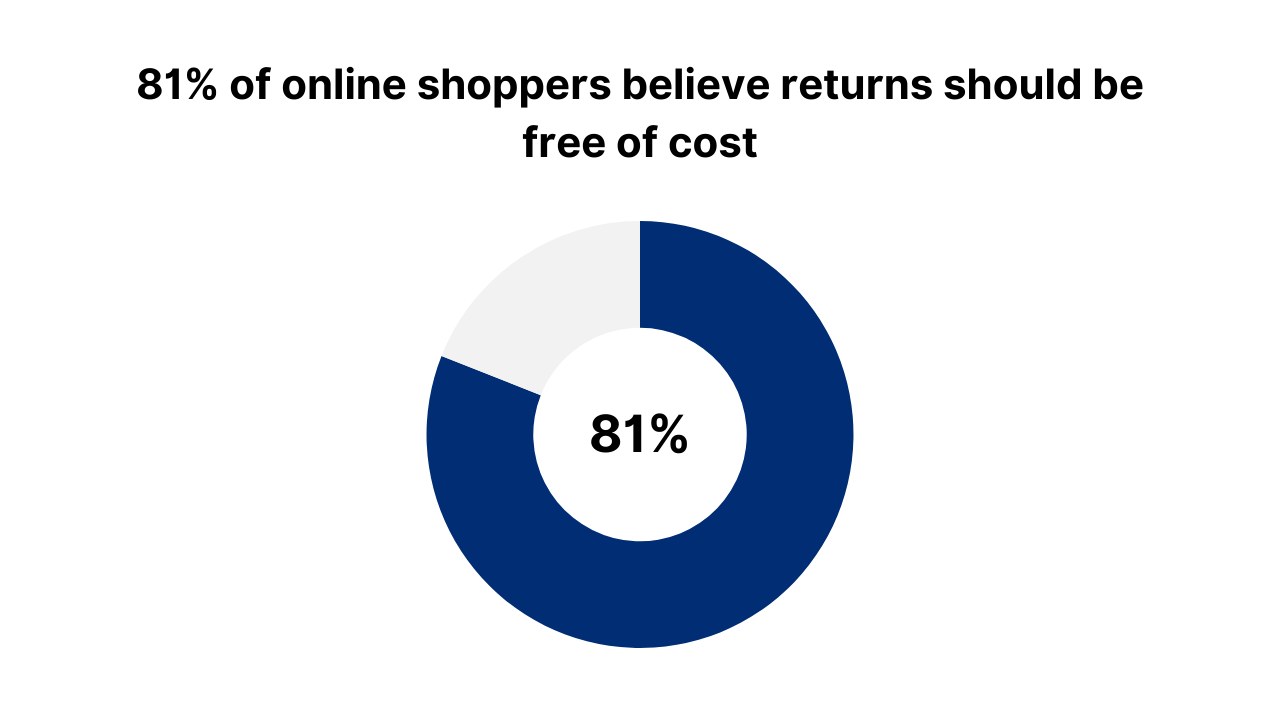
81% of online shoppers believe returns should be free of cost. In comparison, 66% of online retailers don’t offer free returns.
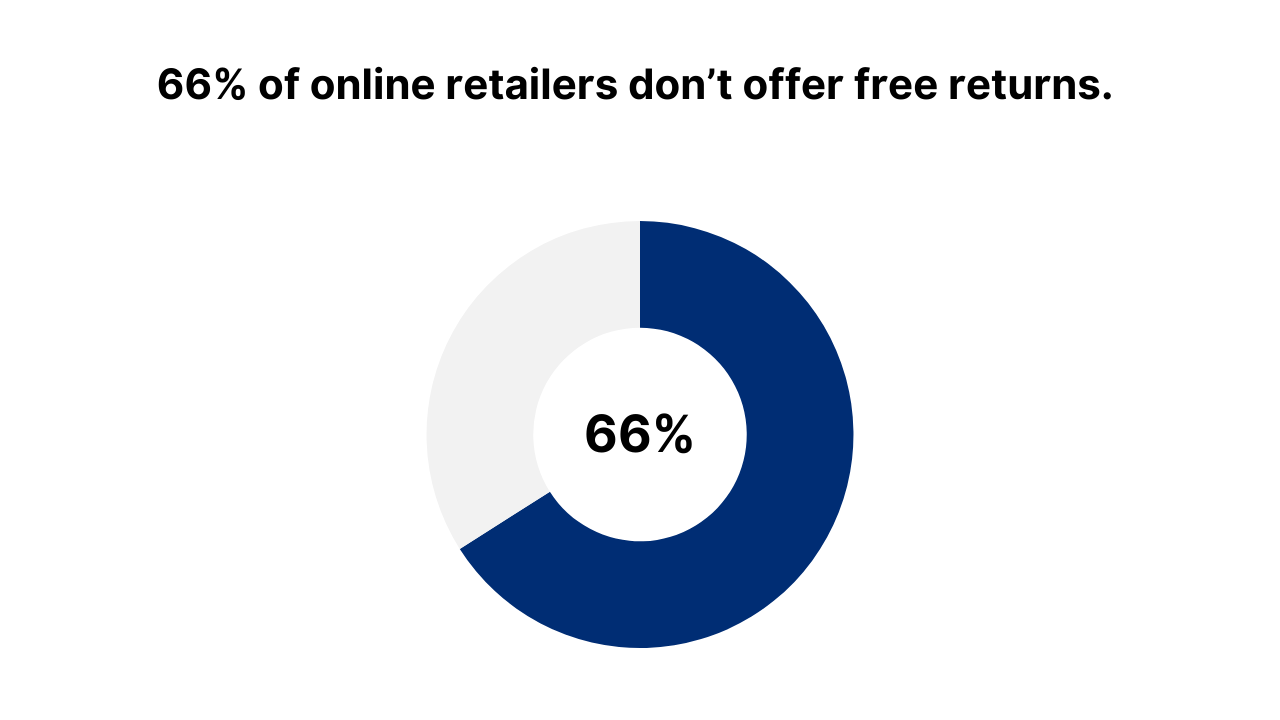
Integrating ShipStation with NetSuite allows you to automate and speed up the process.
Requests for order return through ShipStation are automatically synchronized with NetSuite, so you can manage them more efficiently.
5. Accurate reporting and analytics
The NetSuite ShipStation integration helps e-commerce companies get valuable insights into their shipping and order fulfillment systems.
The data present on both platforms is automatically synced and readily accessible.
It helps you create comprehensive reports for in-depth analysis.
You can assess shipping costs, delivery time, and order fulfillment journeys from start to finish.
These insights can help you identify areas that require improvement.
It empowers business owners to make informed decisions to drive their business forward.
NetSuite integration with ShipStation – a 10-step process
In this process, you’ll leverage ShipStation’s built-in NetSuite integration. It offers three workflow configurations requiring minimal steps.
However, if you are looking for customized field mapping, it’s better to integrate using NetSuite APIs.
For this integration method, you need an active NetSuite account.
You also require NetSuite Consumer Secret, NetSuite Token Key, and NetSuite Token Secret.
The 10-step integration is as follows:
- You will go to your NetSuite Account to locate your credentials.
- Now open another tab or browser window to log in to your ShipStation account.
- Go to its account settings.
- You will choose Selling Channel present on the sidebar and go to Store Setup
- Find Connect a Store or Marketplace and click on it.
- Choose NetSuite
- Select Continue. Here you’ll be required to pay an additional $200/mo fee.
- Next, you’ll fill in the requested fields, such as Consumer Key, Consumer Secret, Token Key, and Token Secret. In this step, you will also choose how you will migrate fulfillments from the drop-down menu.
- Here enter values for Class Filter, Location Filter, and Department Filter. Since these fields are optional, you have the option to edit them later by changing your Store Settings.
- Select Connect and you’re done!
You can modify store-specific settings after completing these steps.
Thus, you can change the background color and other settings as per your brand guidelines.
Also Read:
Three workflow configurations
There are three workflow configurations available. Each workflow is different in the ways it handles shipment notifications.
Sales Order
ShipStation is responsible for picking up and packing the order.
PickPackShip
Pick Flow: The Item Fulfillment Records are prepared against Sales Orders in NetSuite.
While the pickup and packing are managed by NetSuite, ShipStation is responsible for the order fulfillment process.
Find the picked status, as mentioned in the 10-step connecting process.
PickPackShip
Pack Flow: Find the order fulfillment record in the packed status, as mentioned in the 10-step connecting process.
2 reasons why ShipStation automation is necessary
While small businesses can run efficiently with manual order processing, it becomes challenging as the order volume increases.
In this scenario, automation becomes necessary for business sustainability.
Here are two reasons why your business requires ShipStation automation.
Accurate shipment and order details
Mistakes are unavoidable if you manually enter order information across multiple sales channels.
This leads to incorrect shipping details, inaccurate product listings, and lost orders.
Not only does it damage your sales, but it also becomes a reason for additional costs for corrections.
ShipStation can automate order processing information across sales channels, ensuring data accuracy and consistency.
Automated inventory management
Manual management of inventory is challenging.
You can easily oversell sold-out products and experience dead stock situations due to the lack of real-time updates.
This can negatively impact customer experience in your online store.
For example, you could sell a product that’s already sold out. You can also promise an early delivery which is impossible to meet due to certain circumstances.
Limited visibility can hurt your business.
Tackle this issue by automating inventory management with ShipStation.
Actionable steps for a successful integration
Here are 3 actionable steps to make this integration successful:
- Evaluate business needs
- Provide training and support
- Follow all safety protocols
The bottom line
Integrating ShipStation with NetSuite automates order processing and core business operations of e-commerce businesses.
It automates data synchronization between online marketplaces, diverse sales systems, and third-party logistics providers.
While you can connect NetSuite with ShipStation using ShipStation’s built-in integration, it is best to get professional support for customized integration.
Ledger Labs, with its 12+ years of experience, has helped businesses across sizes and industries.
We offer bookkeeping and accounting solutions in the US to businesses as well as technical expertise with NetSuite integrations.
Book a consultation appointment with us today!


